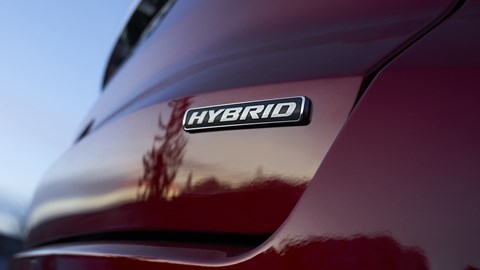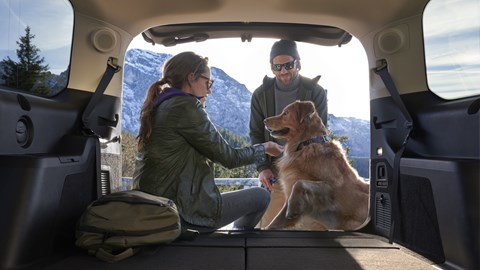► Ford launches not one, but two seven-seater hybrids
► Rare hybrid MPVs compete with SUV rivals
► 2.5 petrol engine paired to electric motor
Ford has launched hybrid variants of its two largest people-carriers – the S-Max and the Galaxy. The two seven-seaters now offer a 187bhp self-charging hybrid system to compliment their existing diesel variants, and Ford claims a reduction in running costs without any real compromise in practicality.
The two models alone form a significant portion of the hybrid seven-seaters currently on sale – it’s a list that so far has only included the Lexus RX L, Volvo XC90 T8 and Kia Sorento Hybrid.
What’s under the bonnet?
Ford’s fitted the Galaxy and S-Max with a similar hybrid powertrain to the existing Mondeo hybrid – pairing a 2.5-litre, naturally-aspirated Atkinson cycle petrol engine to a small electric motor and 1.1kWh battery pack. Together they produce a total of 187bhp and 148lb ft – similar power to the existing EcoBlue diesel, albeit with around half the torque.

It forms what’s known as a self-charging hybrid system, rather than a plug-in hybrid.
Best hybrid cars and PHEVs
This means that the battery is solely charged through regenerative braking and via the petrol engine directly, and means that while the Ford hybrids are capable of short periods of all-electric running you won’t be able to plug in and travel 20 or so miles as a pure-electric vehicle.
The advantage to this is obviously simplicity, both in construction and in usability – buyers won’t need to plug in to the mains in order to get the best out of Ford’s system, although the flip side is that fuel economy and emissions are far closer to a fully combustion-engined car than a PHEV.
Performance isn’t exactly sparkling – more adequate, with both models posting a top speed of 115mph and 0-62mph times of 9.8 and 10.0 seconds for the S-Max and Galaxy respectively.
Will it save me money?
The Hybrid models are currently £635 more expensive than their equivalent diesels, which isn’t a terrible amount – they kick off at £36,535 for the S-Max and £38,695 for the Galaxy. In return, Ford claims improved CO2 and fuel economy figures, with the S-Max returning 43.5mpg and 147g/km of CO2 and the Galaxy a sole 1g/km more.

By contrast, the EcoBlue diesel returns 40.4mpg and 169g/km of CO2.
More usefully, the hybrid models run on petrol, and will be far more suited to the sort of stop/start city driving and short journeys that MPVs usually excel at than the diesels. We suspect the EcoBlue diesel engines will still be the choice for high-mileage drivers or those who spend most of their time on motorways, though.
Any effect on practicality?
Nope. Both cars are still full seven-seaters – with the Galaxy offering a more usable third row in exchange for a bigger, boxier body.
The batteries are stored underneath the rear load floor with a twin exhaust routed around either side, so unlike the Mondeo Hybrid there’s no effect on boot space. With all seven seats in place, the S-Max’s boot is 285 litres in capacity – about the size of a standard supermini’s. With five seats, you get 700 litres, akin to a big estate car, and with all seats folded flat you get a whopping 2,200-litre load area.

For the Galaxy, those figures extend up to 2,339 litres. There are benefits to MPVs, after all – even if they’re not quite as fashionable as their SUV counterparts.
Both cars come as standard in Titanium trim which brings a 10-inch digital instrument panel, rear privacy glass, 17-inch alloys and all-round parking sensors. The S-Max can also be specified as a sporty-looking ST-Line or a luxurious Vignale model.
We’ve not yet driven these hybrid people-carriers, but Ford has a reputation for making practical cars far better to drive than they ought to be. The S-Max in particular is held in high regard for being an MPV that’s actually fun on a B-road.
Both of these models are available to order now.